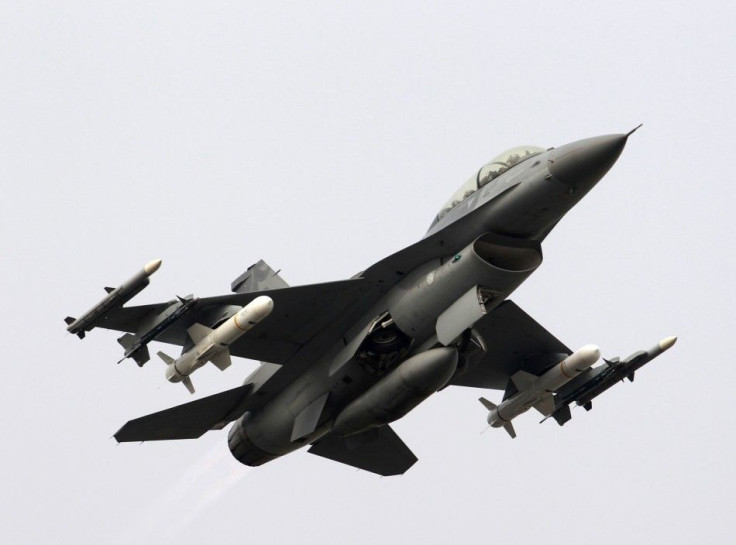China Blasts U.S.-Taiwan Military Deal to Upgrade Fighter Jets

The Chinese government has condemned a $5.85-billion military deal between the United States and Taiwan that will upgrade the latter country’s fleet of American-built F-16 fighters.
China’s Vice-Foreign Minister Zhang Zhijun said the agreement would inevitably undermine bilateral relations, including military and security cooperation.
China's defense ministry warned that the deal with Taiwan has caused serious damage to Sino-US military relations.
Zhang asked Washington to immediately cancel the wrong decision.”
Zhang also summoned Gary Locke, the U.S. ambassador to Beijing, to protest against the deal.
“China strongly urges the United States to be fully aware of the high sensitivity and serious harm of the issue, seriously treat the solemn stance of China, honor its commitment and immediately cancel the wrong decision,” Zhang’s message to Locke stated.
Beijing has long considered Taiwan its own property and reacts angrily to any interference with its affairs.
In 2010, China suspended military exchanges with Washington after Taiwan purchased missiles and other equipment from the U.S.
Despite the harsh rhetoric, it is doubtful that China will take any direct measures against Taiwan or the U.S.
Zhu Feng, professor of international relations at Peking University, told the BBC: China's grandstanding gesture - with very little action - is an attempt to avoid giving Chinese people the impression that despite the US's ongoing arm sales to Taiwan, the authorities are not responding in a robust manner.”
On the surface at least, Taiwan officials applauded the deal.
After the upgrade, the air force's combat capability will be advanced hugely, Taiwanese Defense Minister Kao Hua-chu said during press conference in Taipei.
However, the deal actually fell short of what Taiwan actually wanted – perhaps as a gesture to China. Reportedly, Taiwan wanted a whole new generation of F-16 fighters – instead, the U.S. will merely upgrade the existing older-generation line of about 150 aging aircraft.
Cindy Sui, a BBC correspondent in Taipei, Taiwan, wrote: Analysts say Washington has become reluctant to sell Taiwan big-ticket items in recent years, for fear of angering Beijing. The US needs China's co-operation on many issues - from trade, to North Korea and buying US bonds to deal with its debt. Washington faces a tough balancing act trying to juggle its relationship with China and its commitment to help its longtime ally Taiwan defend itself.”
Meanwhile, Taiwan’s defense ministry reiterated that Chinese military power and expansion poised a dire threat to the island nation.
Improving our defense capability is a crucial... measure to sustain regional security and stable development across the strait, the ministry said in a statement.
Sui of BBC explained: “Despite improved relations between Taiwan and China, Beijing continues to build up its military strength. And that build-up is widely seen as targeted at Taiwan, to warn the island it still claims as its province against becoming formally independent.
The U.S. is legally mandated to help defend Taiwan under the Taiwan Relations Act passed in 1979.
We firmly believe that our arms sales to Taiwan contribute to the maintenance of peace and stability across the Taiwan Strait, State Department spokeswoman Victoria Nuland tells CNN.
© Copyright IBTimes 2024. All rights reserved.




















